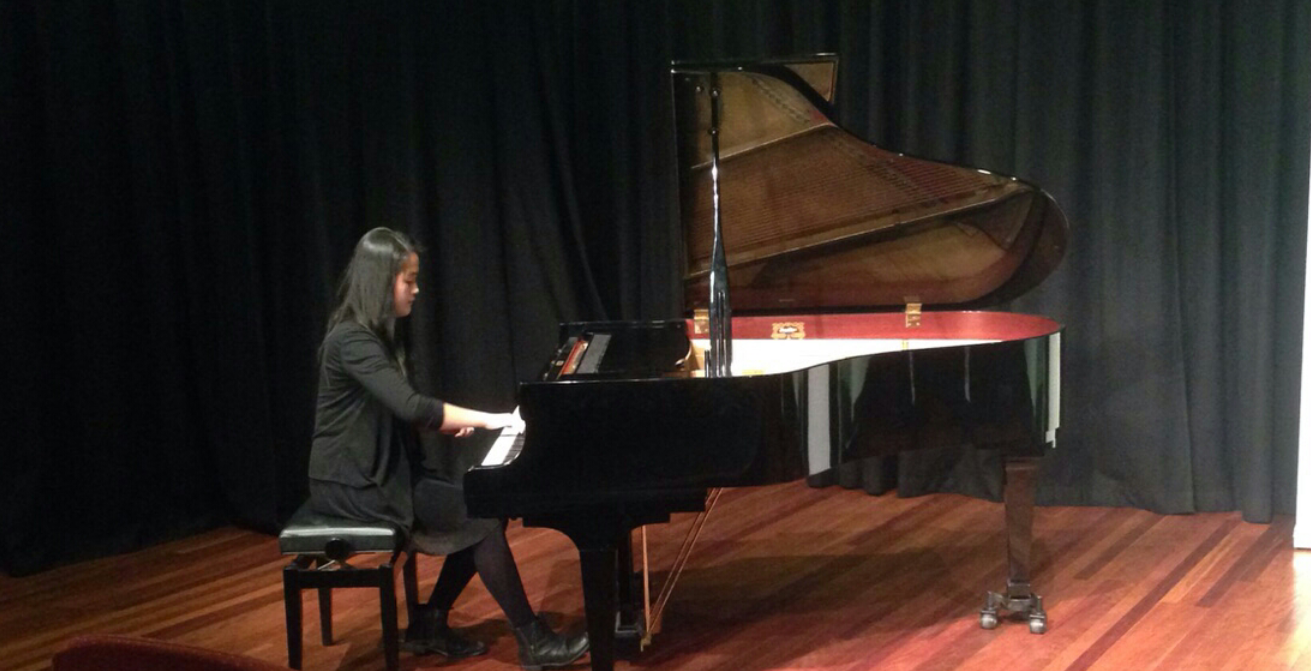“Ah, so you are majoring in music? That’s easy!”
I have heard this kind of statement a million times, and so far the most condescending one was, “My son is not that smart. He can’t really study well at school so I want him to study music in college.”
Back then, those statements left me speechless until I realized that people are still unfamiliar with the whole tertiary music education concept, despite the increasingly growing number of Indonesian music students.
Being a second year Classical Piano Performance major at the Melbourne Conservatorium of Music (a.k.a. “The Con”) – University of Melbourne, I can wholeheartedly assert that the ‘music major is easy’ statement is a myth since I never spend most of my time playing my favorite pieces on the piano. Moreover, I do have the same amount of workloads and exams as the other university students, topped with routine practice sessions everyday. To give you ideas of the music course structure, here is a glimpse of what music students do.
The Core Subjects
The core subjects are the essentials for a music student, and they might be a bit different at other universities with different course structures:
1. Music Performance
A Music Performance subject might be substituted with another subject depends on the specialisation. There are different specialisations in the music faculty, such as Music Composition, Practical Instruments, Musicology, Ethnomusicology, Music Pedagogy, and Conducting. However, some of these are only available for Graduate Studies.
- Major Instrument Class: This is a private class where the student gets to meet the teacher 1×45-60 minutes per week to prepare for their final practical exam, which is either a Technical Exam (Scales, Etudes and Compulsory Pieces) or a 25-minutes Recital Exam. The students need to practice for around 28 hours per week or even more to accommodate the lesson. The key here is not to cram all the pieces just hours before the lesson because it will not work at all.
- Instrument Class: As a pianist, I need to attend a Piano/Keyboard Class 1×120 minutes per week. There are also String Class, Woodwind Class, Percussion Class, Voice Class, and so on for other students. There will be master classes from the lecturers or guest lecturers, which is a chance for the student to perform and get feedback from the experts.
- Concert Class: This is an opportunity to perform in front of the whole music faculty. The most interesting part is that the performers will be given a feedback sheet from the audience afterwards.
2. Music Language
I absolutely agree when people said that learning music is similar to learning a language. To be a fluent speaker of a language, we need to understand its vocabulary, grammar, and beyond. Similarly, the knowledge of music theory, such as chord analysis and harmonic functions, will definitely help us learn music. This is my personal favorite subject, even though most of the other students find it time-consuming due to the weekly assignments and its fast pace. Furthermore, the listening test and final exam for this subject are relatively harder than the other subjects.
3. Music History
Please throw away the idea of memorizing the history of music like primary school students do. In this subject, we are asked to write research essays and give presentations, which include playing the instrument while presenting. Yes, music students are required to write essays, conduct research, and present as well! The intended outcome is that we will be able to apply our history knowledge to our performances.
4. Aural Studies
Unless the student is capable of doing this, aural studies is definitely necessary. Non-music students consider the lecture amusing because of the never-ending clapping and singing. Nonetheless, transcribing melodies and sight singing tests in the tutorial class could improve our musicianship.
Applied Skills Subjects
Beside the core subjects, there are applied skills subjects as well. For example, Music Psychology, Music and Health, Music Business, Art of Piano Teaching, Alexander Technique for Musicians, and Computing for Musicians. For people who are keen on more practical subjects, the faculty offers Minor Music Performance, Chamber Music, Orchestra, Choir, Piano Duo, Shakuhachi, African Drum and Dance, Chinese Orchestra and Gamelan. Chamber Music is a popular subject, and this is what the students do in the class.
I have got the chance to take some of the subjects aforementioned, and so far my favorite is Art of Piano Teaching, partly because of my aspiration to become a music educator. In one of the assessments, the students were made to choose a piece of music with which beginner to intermediate students are taught Afterwards, they had to explain the ‘hidden lessons’ the composer wanted to convey to the audience, which could be particular techniques, imagery, or anything else. After finding the ‘hidden lessons’, the students had to present the steps required to teach the piece and transfer the knowledge to the learners. Although the process of choosing the piece itself is inherently hard, the real problem was the obligation to look for the appropriate teaching method and present at a professional conference. Surprisingly, and interestingly, from watching other students’ presentation, the students could easily tell what is effective and what is not in teaching, and also what makes a great teacher. In my opinion, this subject is very helpful for students who are after a teaching career.
Life Beyond The Campus
Author (middle) with her choir friends
One of the perks of being a music student is that we can get involved in a lot of music communities inside and outside the campus. We get to meet fellow musicians, enhance our creativity, and play delightful music by joining communities such as choir, orchestra or even the university music theatre productions. Indirectly, these activities also improve our skills in practicing and performing music, which are especially important for Classical music students. Sometimes, we even get free concert tickets! Watching professional musicians performing at the concert will definitely motivate us to practice more. In addition, if there is still enough time to practice, some students will join competitions or performance engagements in order to gain experience and make some money.
To sum up, being a music student is not only about the proficiency in playing the instrument. Persistence is also a must since musicians are also required to build upon their other skills, such as research, presentation, and social skills.. Moreover, just like any other majors, such as Law, Medicine, and Finance, musicians need significant time to complete their Bachelor, Master, or Doctoral degree. There is no such thing as requiring less time because music major is ‘easier’. As the famous composer and conductor Leonard Bernstein said, “To achieve great things, two things are needed; a plan, and not quite enough time.”
Photos provided by the author
Edited by Hadrian Pranjoto











